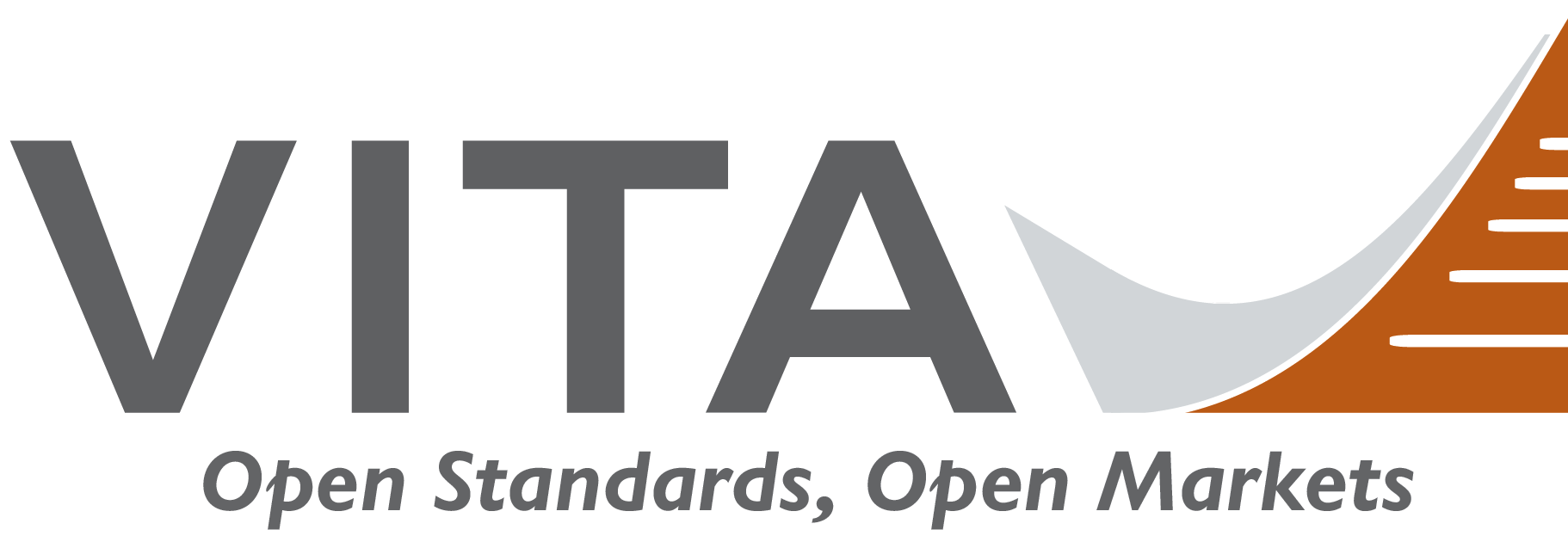Vi-ta [vee-tuh] | Critical Embedded Systems are everywhere . . . Become a leader in setting new directions! |
Read this great article "Fear and Loathing in the Standards Process" by Ray Alderman to get a better understanding of 'ex-ante'. It is in layman terms and well worth your time to read this to understand why VITA has some of the policies that we implement.
Disclosure and Licensing of Patents in Standards
VITA broke new ground in the area of disclosure and licensing of patents in standards, becoming the first standards developer in the world to receive guidance for 'ex ante' procedures from any legal authority. The patent policy is included as part of the VSO Policies and Procedures (downloadable from the Governance page). VITA maintains a record of all Essential Patent disclosures with FRAND terms.
The policy has significant impact in two areas. The first is the change from a voluntary system to a mandatory system of disclosing of essential patents and patent applications. The second area of impact is the Fair, Reasonable, And Non-Discriminatory (FRAND) disclosure of maximum fees or royalties and the most restrictive terms for licenses to technology essential to implementation of a standard that is in development by a working group. Members to new working groups that form have 60 days to disclose essential patents or patent applications and license terms while members in existing working groups have 30 days.
The objective of this policy change was to eliminate patent ambush. VSO working groups are expected to make sound technical and business decisions. Patent ambushes can delay or undermine the acceptance of new standards.
In 2006, the US Department of Justice (DOJ) issued or reviewed these documents related to VITA and VSO activity.
- DOJ news release (PDF) from October 30, 2006
- DOJ business review letter (PDF) dated October 30, 2006, referenced in the news
release - Implementation Plan for VITA's Revised Patent Policy (PDF) posted December 18,
2006
In addition to the DOJ, there are other government agencies and other organizations reviewing VITA procedures, approval letters, and other documentation. Updates will be posted here as available to keep everyone informed of progress inside VITA, and with other agencies and organizations.
The VITA Board of Directors approved the changes to section 10 of the VSO Policies and Procedures on 21 November 2006.
On 17 Jan 2007, these changes were voted on and approved by the VSO, and the VITA Board of Directors and VITA attorneys were immediately informed of the results. VITA attorneys subsequently informed ANSI counsel and the ExSC (Executive Standards Council of ANSI), and submitted the required documentation in accordance with ANSI procedures and policies concerning "maintenance of accreditation".
On 30 January 2007, a joint FTC/DOJ informational hearing was held, which VITA attorneys attended.
On 31 May 2007, the ExSC of ANSI announced approval of the new policies and re-accreditation of VITA as an ANSI standards developer, effective as of May 22, 2007.
On 27 June 2011, American University, Washington College of Law published "An Empirical Study of the Effects of Ex Ante Licensing Disclosure Policies on the Development of Voluntary Technical Standards" under contract from the National Institute of Standards and Technology (NIST). Here is an excerpt from the Executive Summary (highlighting added for emphasis):
In general, we did not find that ex ante disclosure policies resulted in measurable negative effects on the number of standards started or adopted, personal time commitments or quality of standards, nor was there compelling evidence that ex ante policies caused the lengthening of time required for standardization or the depression of royalty rates. There was some evidence to suggest that the adoption of ex ante policies may have contributed positively to some of these variables. Moreover, a significant majority of VITA participants responding to our survey felt that the information elicited by the organization's ex ante policy was important and improved the overall openness and transparency of the standards-development process. Thus, while there are numerous areas in which further study and analysis may be warranted, and other organizations in which the implementation of ex ante policies may have different effects, we conclude, on the basis of the data that we have reviewed, that the process-based criticisms of ex ante policies and the predicted negative effects flowing from the adoption of such polices, are not supported by the evidence reviewed.
The VITA Standards Organization is currently operating under these approved policies and procedures. As an aid to its membership, VITA has a training presentation outlining the policy for working group chairs and members.
